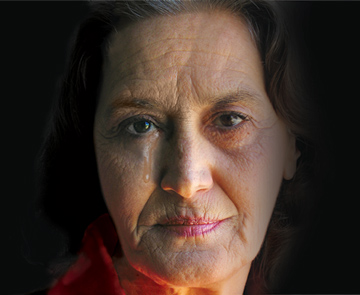

A: Elder Abuse.
On June 15th, 2006, the International Network for the Prevention of Elder Abuse and the World Health Organization at the United Nations created World Elder Abuse Awareness Day (WEAAD) to bring attention to the on-going problem of Elder abuse.
Elder abuse can happen in any culture, any religion, any race, any sex, and at any time.

What is Elder Abuse?
According to the National Center of Elder Abuse (NCEA), elder abuse constitutes the following:
Physical Abuse - Inflicting, or threatening to inflict, physical pain or injury on a vulnerable elder, or depriving them of a basic need.
Emotional Abuse - inflicting mental pain, anguish, or distress on an elder person through verbal or nonverbal acts.
Sexual Abuse - Non-consensual sexual contact of any kind, coercing an elder to witness sexual behaviors.
Exploitation - Illegal taking, misuse, or concealment of funds, property, or assets of a vulnerable elder.
Neglect - Refusal or failure by those responsible to provide food, shelter, health care or protection for a vulnerable elder.
Abandonment - The desertion of a vulnerable elder by anyone who has assumed the responsibility for care or custody of that person.
Domestic Elder Abuse:
Although each state in America has different guidelines of Elder abuse according to its unique statutes and regulations, the one common thread is that the abuse is generally perpetrated by someone the elder knows. According to the National Center of Elder Abuse (NCEA),
Domestic elder abuse generally refers to any of the following types of mistreatment that are committed by someone with whom the elder has a special relationship (for example, a spouse, sibling, child, friend, or caregiver).
National Center of Elder Abuse http://ncea.aoa.gov/faq/index.aspx
Life Alert’s has many lifesaving Protection Packages for you to celebrate. So call 1-800-380-0768 and order a Free Life Alert Brochure today.